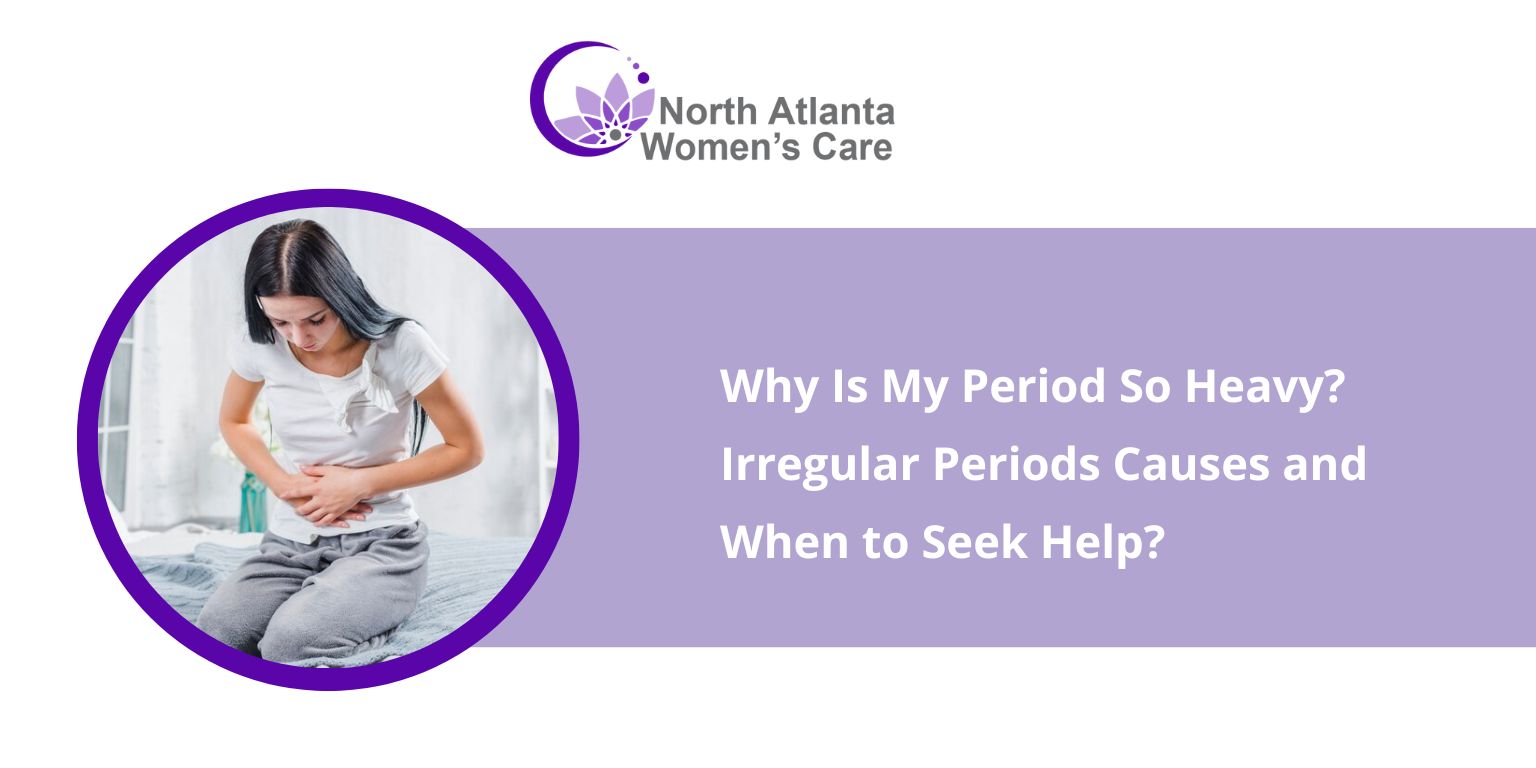Why Is My Period So Heavy? Irregular Periods Causes and When to Seek Help?

Many women experience heavy or irregular periods at some point in their lives, but when should you be concerned? While fluctuations in menstrual cycles are common, excessively heavy bleeding or unpredictable cycles may indicate an underlying health issue.
Menstrual cycle changes can be influenced by various factors, including hormonal imbalances, lifestyle habits, and medical conditions. Understanding the causes behind these changes can help you determine when it’s time to seek professional help.
Why Is My Period So Heavy? Common Causes
If you’ve ever wondered, why is my period so heavy?, you’re not alone. Here are some common reasons why heavy periods occur:
1. Hormonal Imbalance
The delicate balance of estrogen and progesterone regulates the menstrual cycle. When these hormones fluctuate, the uterine lining can become too thick, resulting in heavier bleeding. Conditions like perimenopause or polycystic ovary syndrome (PCOS) can contribute to these imbalances.
2. Fibroids or Polyps
Uterine fibroids (non-cancerous growths in the uterus) and endometrial polyps can lead to prolonged and excessive bleeding. These growths may also cause spotting between periods.
3. Perimenopause
As women approach menopause, their hormones shift, often causing irregular and unpredictable periods. Some may experience significantly heavier bleeding during this phase.
4. Endometriosis or Adenomyosis
Endometriosis occurs when the uterine lining grows outside the uterus, leading to severe cramps and heavy menstrual bleeding. Adenomyosis, where the uterine lining grows into the muscular wall, can also cause painful and prolonged periods.
5. Blood Clotting Disorders
Some women have underlying clotting disorders, such as Von Willebrand disease, which make them more prone to excessive menstrual bleeding. If you pass large clots or bleed heavily for extended periods, a clotting disorder could be a factor.
6. Birth Control and IUDs
Certain birth control methods, particularly non-hormonal copper IUDs, may cause heavier periods. Some hormonal contraceptives can also lead to changes in bleeding patterns during the first few months of use.
Understanding Irregular Periods: What Causes Them?
If you’re asking what causes irregular periods?, the answer often lies in your lifestyle, health conditions, or hormonal fluctuations. Some common causes include:
1. Stress and Lifestyle Factors
High stress levels, poor diet, excessive exercise, and lack of sleep can all disrupt hormonal balance, leading to irregular cycles.
2. Polycystic Ovary Syndrome (PCOS)
PCOS is a hormonal disorder that affects ovulation, often leading to missed, irregular, or heavy periods. Women with PCOS may also experience acne, hair growth, and weight fluctuations.
3. Thyroid Disorders
Both an overactive and underactive thyroid can interfere with the menstrual cycle, causing irregular or absent periods.
4. Excessive Weight Gain or Loss
Sudden weight changes can affect ovulation and disrupt period regularity. Since body fat plays a role in hormone production, rapid weight fluctuations may impact your cycle.
5. Certain Medications
Some medications, including blood thinners, antidepressants, and hormonal treatments, can influence menstrual cycles and cause irregular bleeding.
Irregular Periods: A Sign of What? When to Be Concerned?
Irregular periods can sometimes be harmless, but they may also signal underlying health concerns. You should seek medical attention if:
- Your periods regularly last more than seven days.
- You experience frequent spotting between periods.
- Your cycle is consistently shorter than 21 days or longer than 35 days.
- You pass large blood clots (larger than a quarter).
- Your irregular cycles are accompanied by severe cramps, dizziness, or extreme fatigue.
Persistent irregularities should not be ignored, as they may indicate hormonal imbalances or reproductive health conditions requiring treatment.
When to Seek Medical Help for Heavy or Irregular Periods?
If you’re unsure whether your period symptoms warrant a doctor’s visit, consider seeking medical attention if:
- You soak through a pad or tampon every 1-2 hours for several consecutive hours. This may indicate excessive blood loss and increase the risk of anemia.
- Your periods are irregular for multiple months without a clear reason. Occasional fluctuations are normal, but chronic irregularity could signal an underlying issue.
- Your periods suddenly stop or become unbearably painful. A sudden absence of menstruation (amenorrhea) or severe menstrual pain should be evaluated.
- You experience symptoms of anemia. Fatigue, dizziness, shortness of breath, and weakness can all indicate excessive blood loss requiring medical attention.
Your doctor may suggest blood tests, hormone evaluations, ultrasounds, or other diagnostic tests to identify the cause and recommend appropriate treatments, such as birth control, hormone therapy, or surgical interventions.
Regain Control of Your Menstrual Health
Heavy and irregular periods don’t have to disrupt your life. Understanding what causes these changes can help you take proactive steps toward better menstrual health. Simple lifestyle changes, stress management, and medical guidance can help regulate your cycle and ease symptoms.
Find the Right Care for Your Period Concerns
If you’re experiencing heavy or irregular periods and looking for expert care, North Atlanta Women's Care can help. Their experienced team specializes in diagnosing and treating menstrual irregularities, ensuring you receive personalized and compassionate care.
Don’t wait for your symptoms to worsen - Contact us at 770-771-5270 or schedule an appointment today and take the first step toward better menstrual health.
Comments are closed

